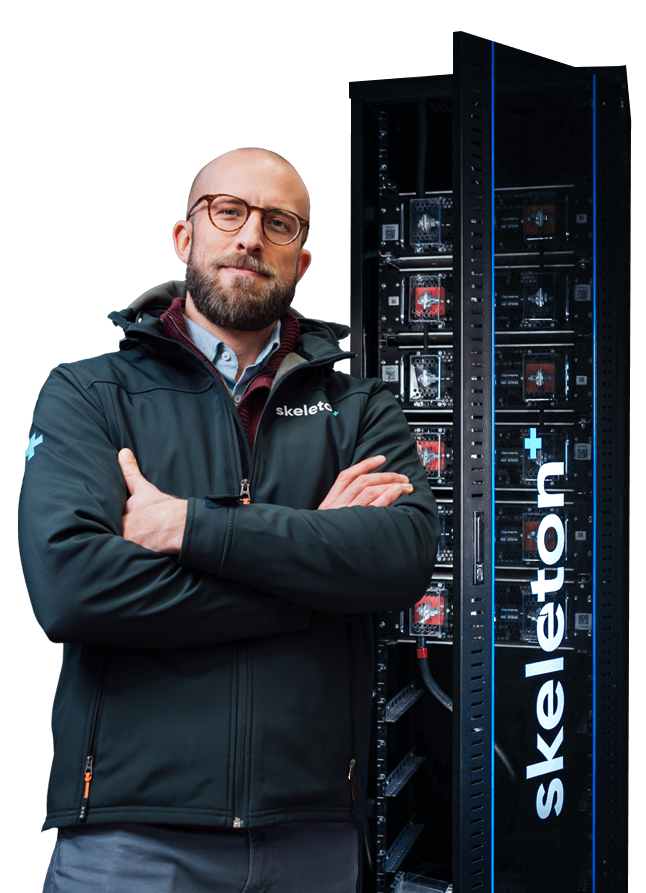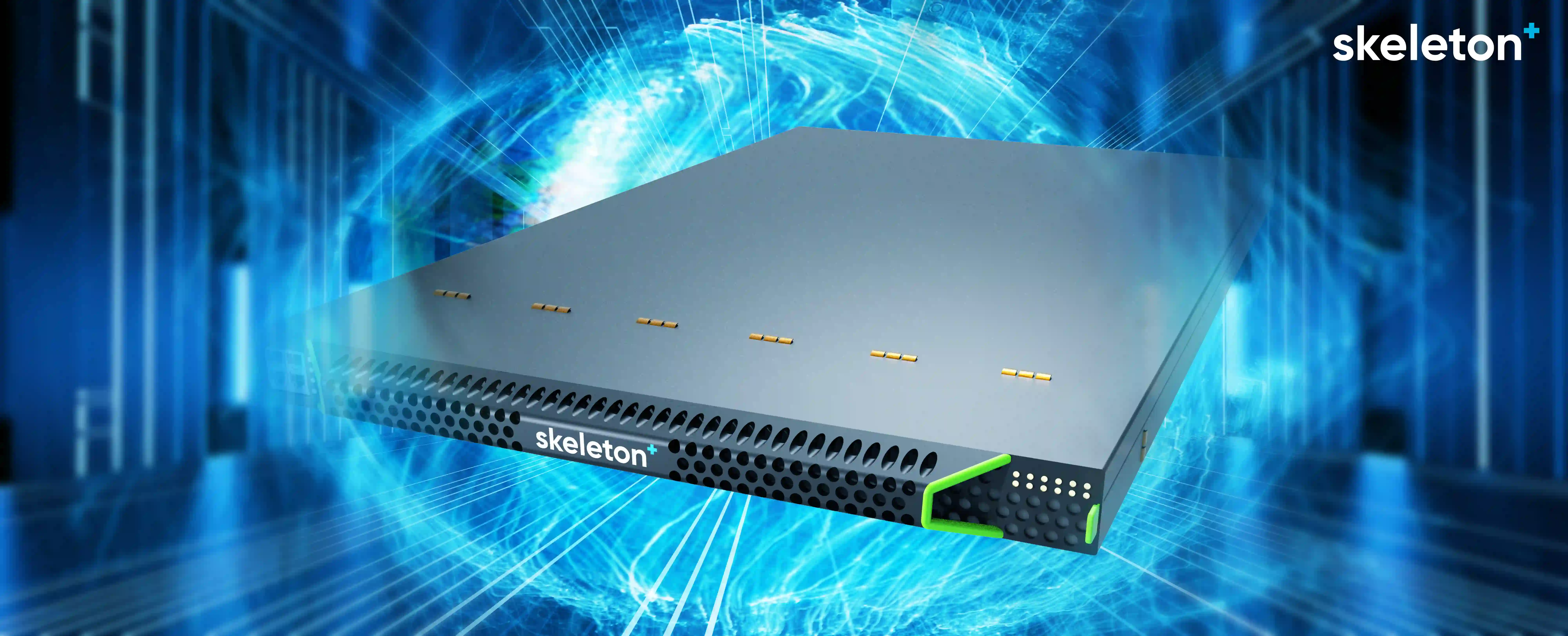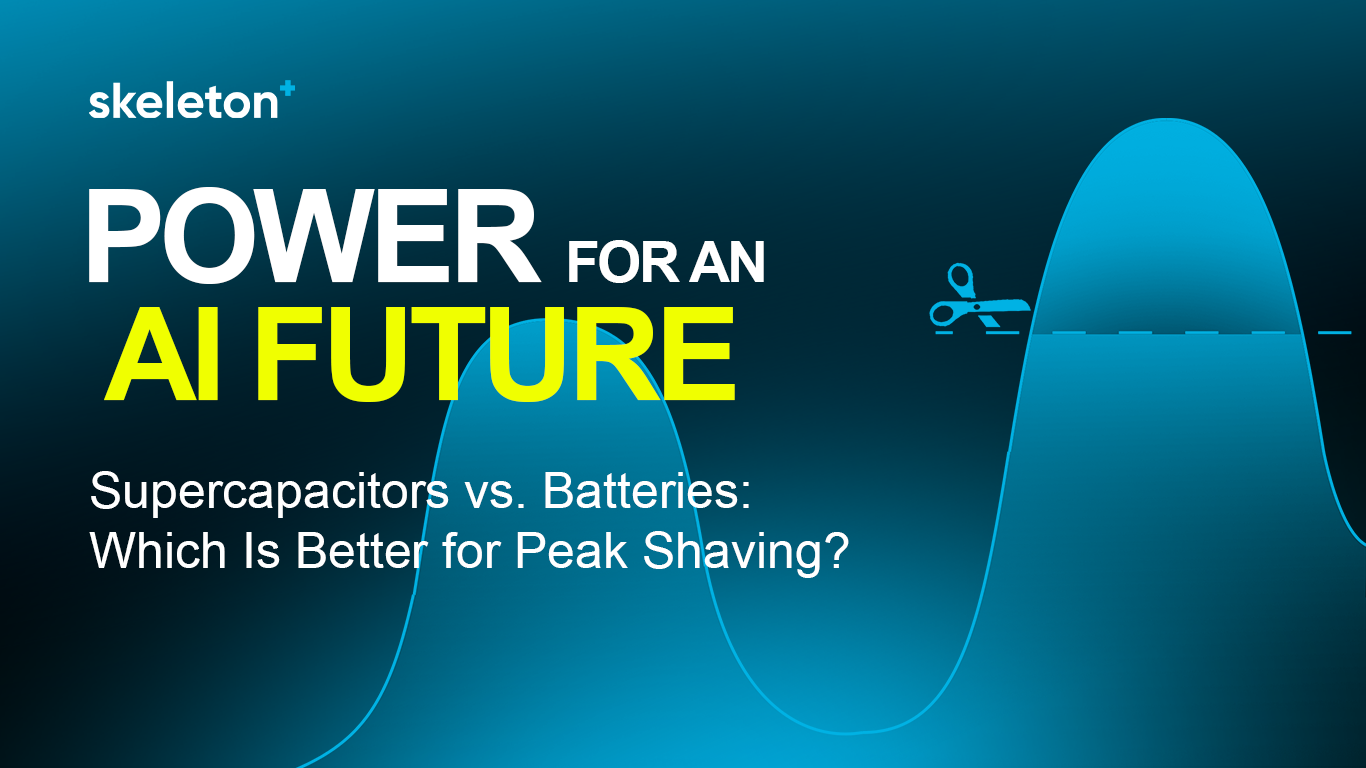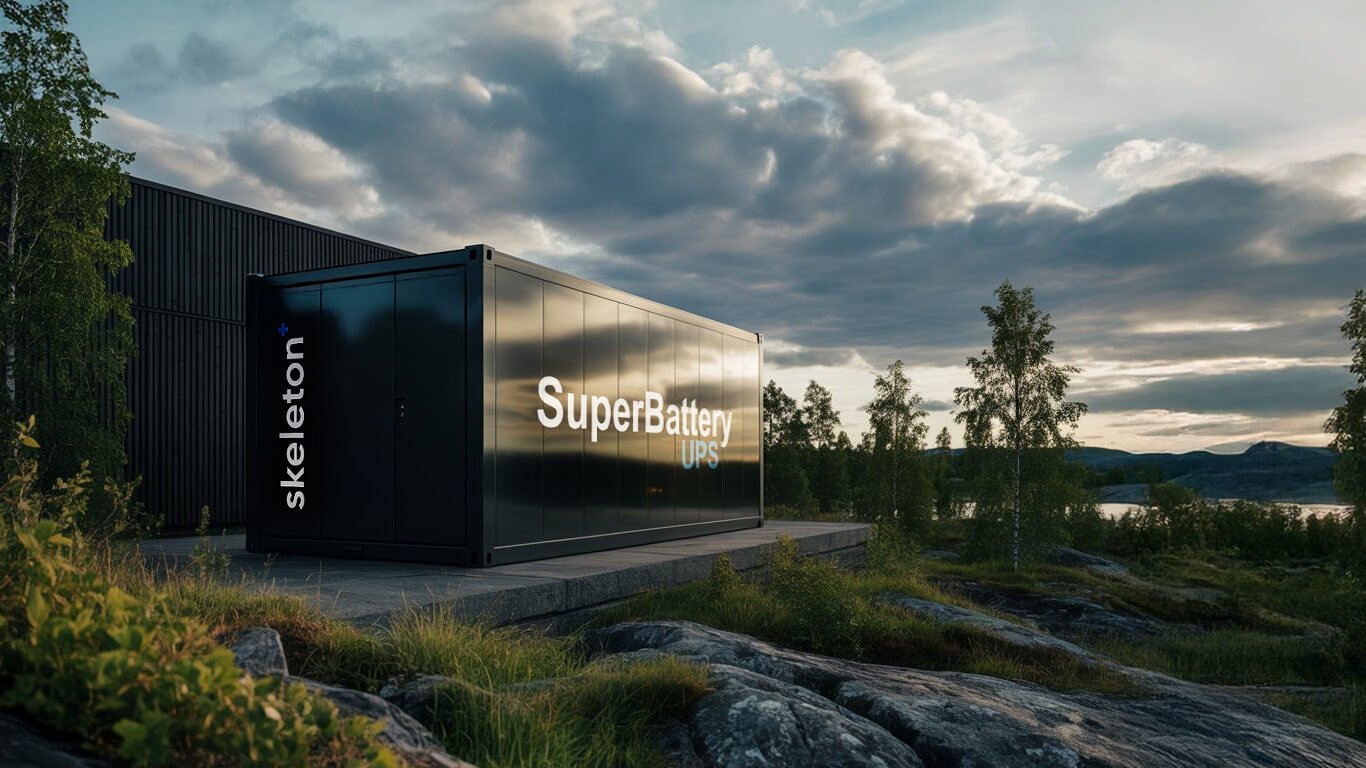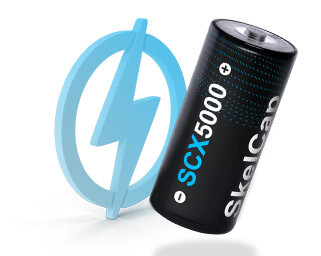
Jean Labrie from C8 Energy: people can't believe that an 8,5 kg weighing SkelStart could crank a 27-liter engine
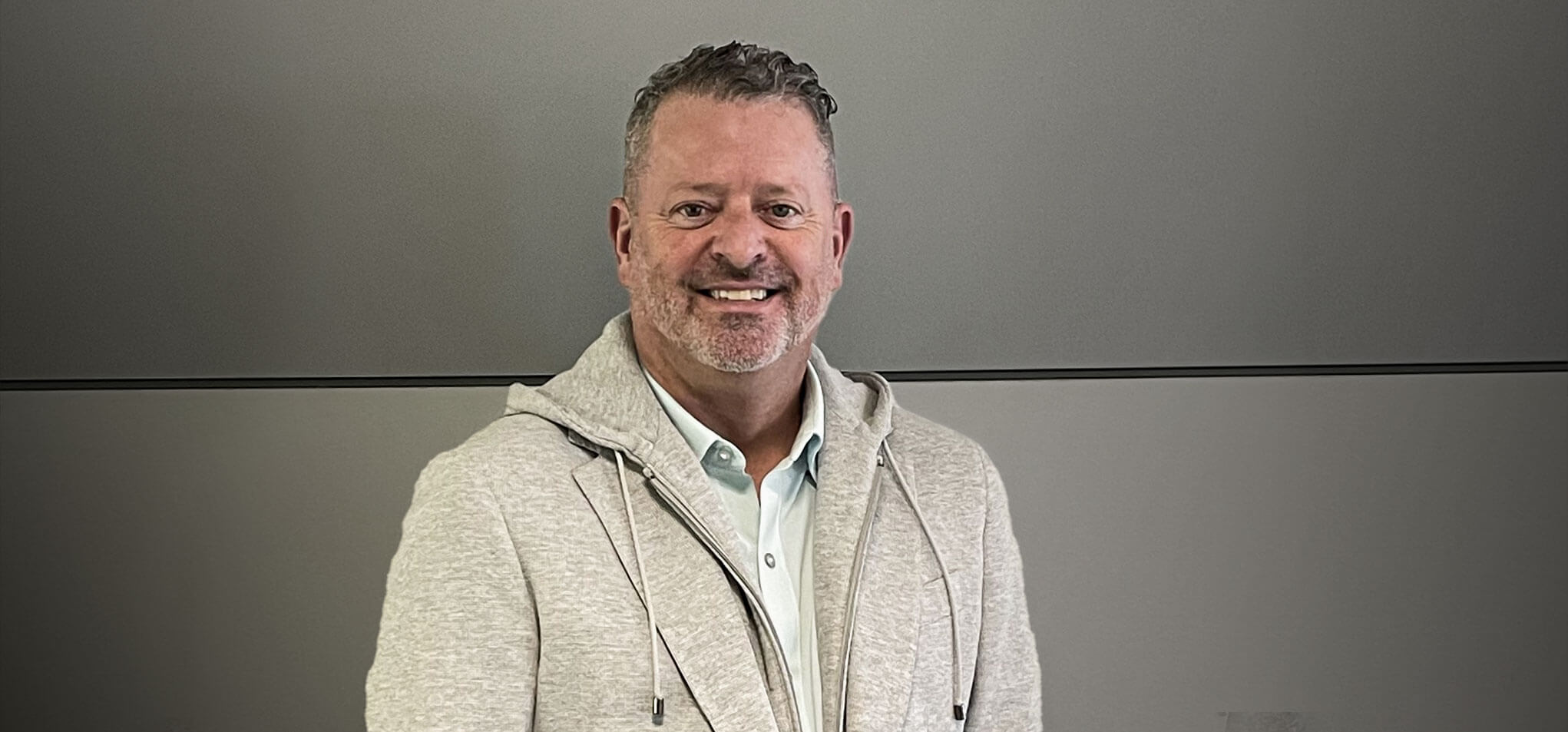
Based in Mississauga, Ontario, C8 Energy is a Canadian equipment distributor for the heavy-duty vehicle industry and is the exclusive supplier of SkelStart in Canada and distributor to North America. Their mission is to provide a greener, more efficient energy solution for the heavy-duty vehicle industry, both on and off road.
The founder and president of C8 Energy Jean Labrie has been involved in the heavy-duty vehicle market for over 30 years. Around two years ago while visiting a fleet, he saw pallets of lead-acid batteries that needed to be shipped out for recycling. “Gee-whiz, that's huge!” I told my friend to which he replied it’s nothing out of the ordinary. “It's like this every month.” That particular fleet had 700 tractors and replacing lead-acid batteries was their third biggest operational expense,” says Labrie. 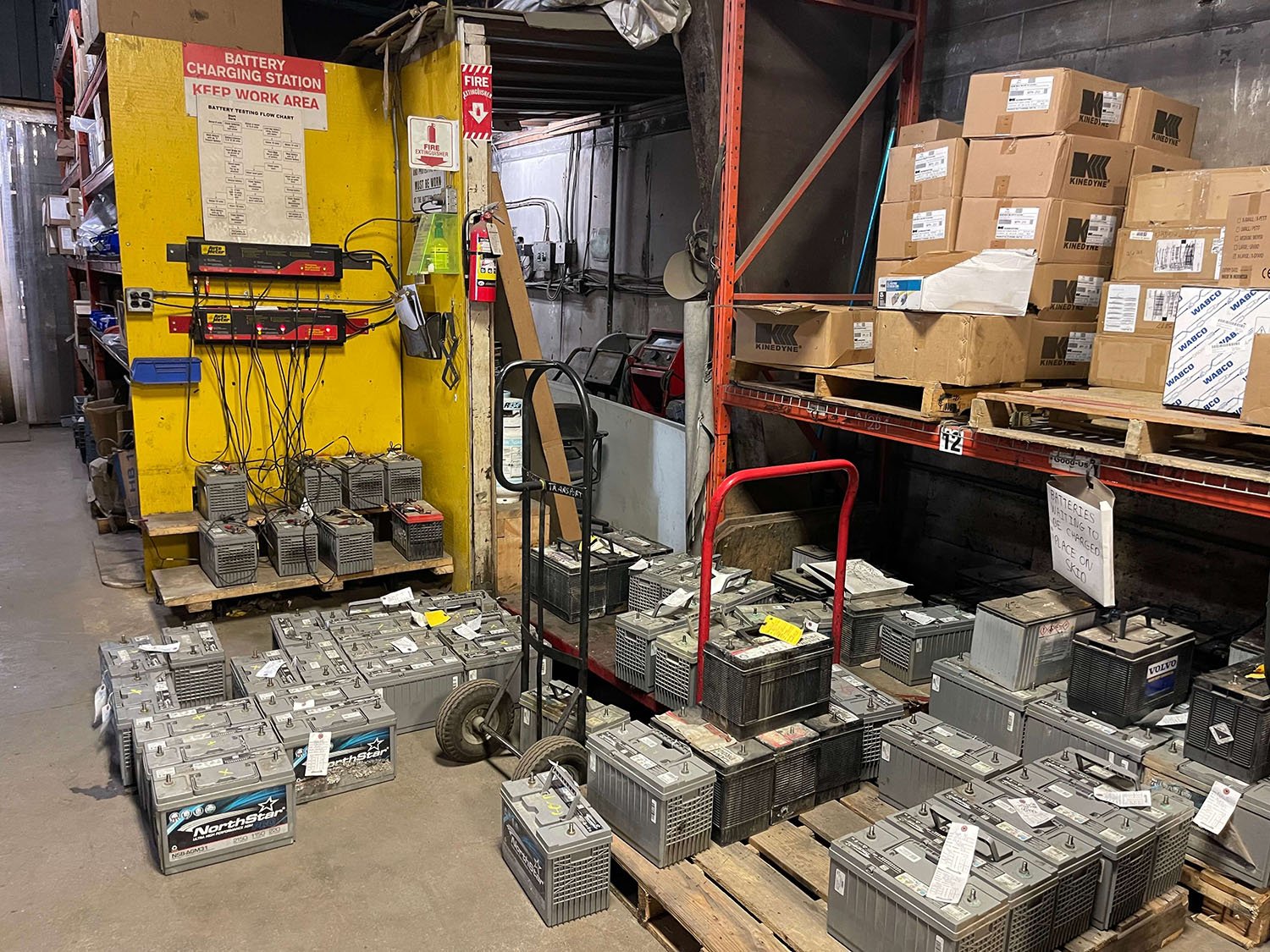
Escalation of a historic problem
The problem has been a long time coming. Batteries’ short lifespan and vulnerability to extreme weather conditions have always been of concern, argues Labrie.
“Diagnosing battery health, dealing with corrosion on their pole or treads, needing road services for jump-starting the engine, oversizing the battery pack to guarantee reliable ignition – these have always been major issues and still are. In that regard, nothing significant has changed for decades.”
For combustion engine vehicles, there's hasn’t been any viable technologies commercialized that cost-effectively increase the longevity of lead-acid batteries. “The only thing that the fleets can do is change from one supplier to another with the hope of a marginal increase of the battery lifespan or reduction of cost. Whichever fleet you talk to, batteries have always been and still are one of the top-5 expenses”.
Whichever fleet you talk to, batteries have always been and still are one of the top-5 expenses.
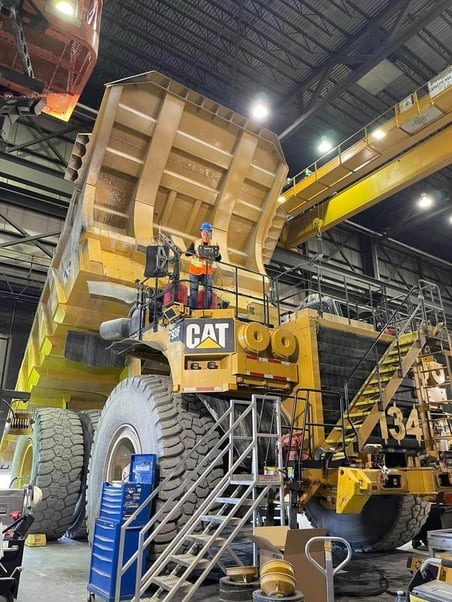
In addition to the high operational cost, the reliability of the system is of concern. “Lead-acid batteries decrease in efficiency already after a short period of usage. If you’re lucky, you get roughly 1000 to 1500 cycles and 50% discharge out of them.” While the battery with reduced efficiency is still operational in mild temperatures, it becomes a real headache in harsher conditions. “We know of cases in Northern Canada where the driver has kept the truck’s engine running throughout the weekend in the wintertime, because otherwise in the cold the engine might not start on Monday morning,” illustrates the founder of C8 Energy.
While the lead-acid battery technology has remained fairly the same for decades, new external factors are amplifying the long-winded struggle of fleets. Regulation concerning environmental impact has come to the forefront, but COVID, the current global situation, and sky-rocketing energy prices have escalated the urgency for a viable solution.
Regulation concerning environmental impact has come to the forefront, but COVID, the current global situation, and sky-rocketing energy prices have escalated the urgency for a viable solution.
“We're facing a major fuel price increase in North America. In the United States, we've gone from $2 to $5.40 per gallon and high idling has become a major expense for the fleet. Lowering demand for energy and finding ways to avoid idling to keep the battery charged for ignition is one of the main preoccupations for fleets.”
Harsh weather conditions
With around 4,4 million class 8 trucks in USA and Canada, the North American heavy-vehicle industry needs a solution that works both in cold and hot climates. A vehicle that picks up the load in Northern Quebec at -28 Celsius might deliver it to tropical Florida at +25 Celsius four days later. With two closely intertwined markets and trucks delivering goods cross-nationally through various climate regions, you need something that can reliably crank an engine both at -40 and +40 degrees Celsius.
A vehicle that picks up the load in Northern Quebec at -28 Celsius might deliver it to tropical Florida at +25 Celsius four days later.
The main problem in the cold climate is draining your lead-acid battery by cranking the engine. In hot climates, you're draining your lead-acid battery because you're using them for the auxiliary system like air conditioning during the driver’s rest time. As a result, the battery can be drained by the time you want to start the vehicle in the morning, and you’re in the need of a jump start. Draining your battery often will shorten its lifespan significantly and force the fleet to replace the battery much sooner than expected.
An unexpected solution
After witnessing the mounting piles of used lead-acid batteries first-hand, Labrie dug deeper into why lead-acid batteries were such a high expense with the goal of finding a more sustainable solution. “While doing my research I found out about SkelStart, Skeleton Technologies, and their CEO Taavi Madiberk. I messaged him through LinkedIn and that’s how our collaboration started,” says Labrie.
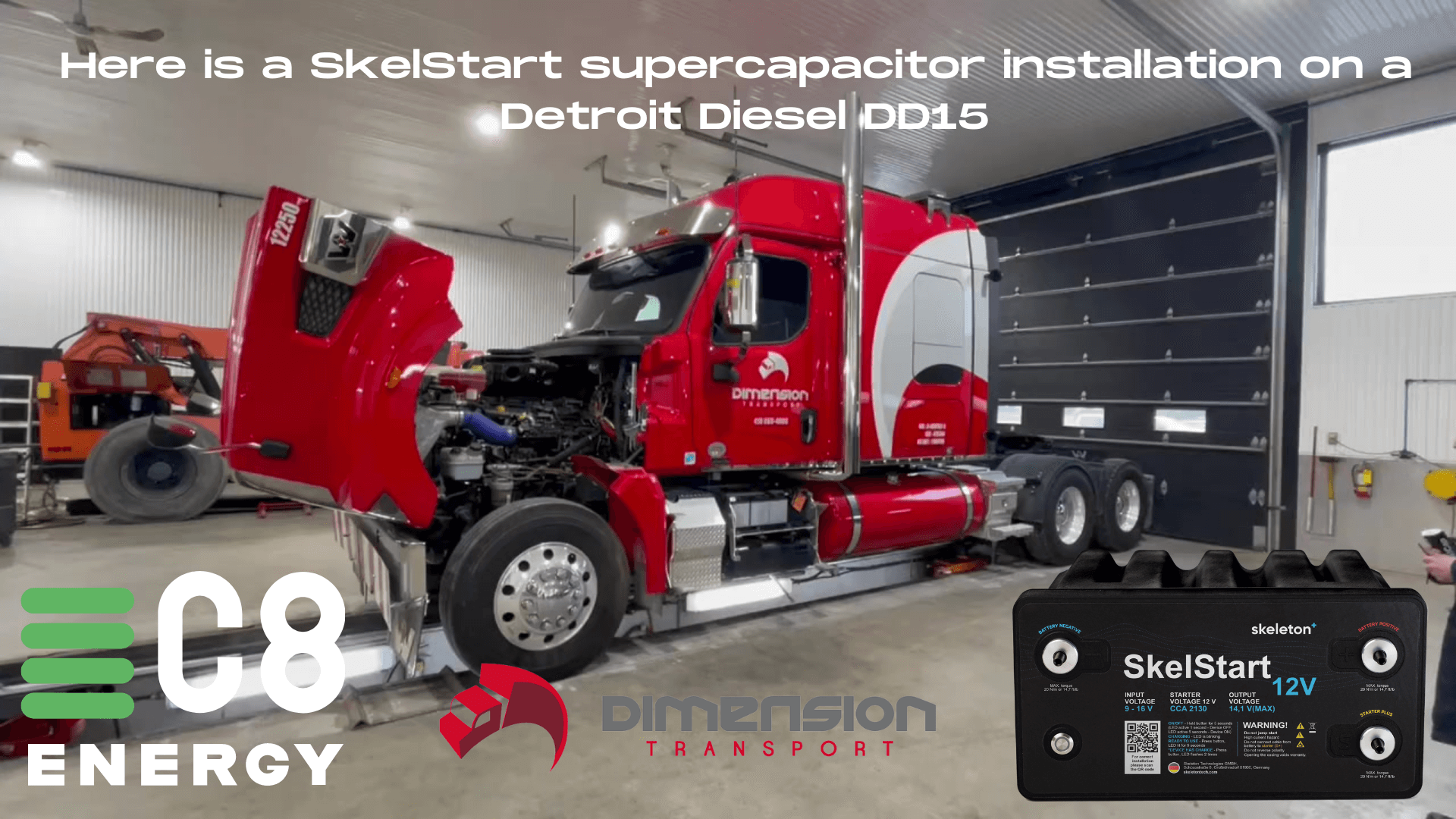
Sample units were sent to Canada for C8 Energy to test if they deliver on the promise to be the most powerful module for engine starting applications in the world whilst being completely maintenance-free and proving reliable starting throughout the truck’s entire lifespan.
“After visible results from many clients, we’re confident that the supercapacitor-based engine start module will offer major cost savings and have a quick return on their investment. Just by eliminating idling, you can reduce trucks’ fuel consumption on average by 400 liters or 106 gallons a year saving money as well as reducing CO2 and NOx emissions. The supercapacitor-based module will extend the lifespan of your batteries up to 2X protecting them from frequent high peaks of current needed for engine cranking. Unlike a lead-acid battery, supercapacitors are not affected by temperature – there are no weather conditions too extreme on our planet for this robust module to fail engine starting. Having a SkelStart onboard the vehicle means that you don't need to worry about cranking even with completely depleted lead-acid batteries.“
After visible results from many clients, we’re confident that the supercapacitor-based engine start module will offer major cost savings and have a quick return on their investment.
Getting the word out there
People are ready to look at new technologies, but according to Labrie, the knowledge of energy-storage-based engine starting solutions is low. “I would say 99% of people in the trucking industry don't know about supercapacitors or an engine start module. That’s why our main challenge right now is to explain how the product works. Naturally, people are cautious thinking that it's a brand-new technology, but that’s not the case – SkelStart has been successfully on the market since 2017. It just hasn’t been widely promoted in our region thus far.
Naturally, people are cautious thinking that it's a brand-new technology, but that’s not the case – SkelStart has been successfully on the market since 2017. It just hasn’t been widely promoted in our region thus far.
“We know this technology is a good fit for the heavy-duty market. For a year, there hasn’t been a single fleet, OEM, or distributor that I’ve talked to who hasn’t had any interest in the product. People in business just can't believe that an 8,5 kg weighing SkelStart could crank a 27-liter engine whatever the temperature. The unit weighs less than half the weight of the starting battery it replaces.”
They have never seen anything like it – something that looks so similar to a battery but has three poles to isolate the starter and disable its connection to the existing lead-acid battery, making it the sole starting power for the engine.
They have never seen anything like it – something that looks so similar to a battery but has three poles to isolate the starter and disable its connection to the existing lead-acid battery, making it the sole starting power for the engine.
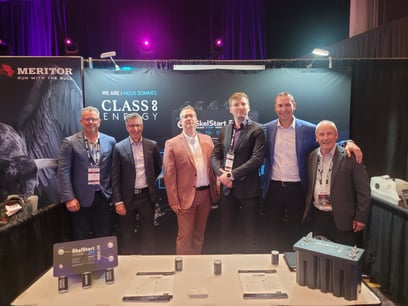
Skeleton Technology is the global leader in what they do and has a great team of dedicated people to work with. In the meantime, they won the European Invention Award in 2022 for their new supercapacitor cells. We are proud to be partnering with them,” says Jean Labrie, co-founder of C8 Energy.
